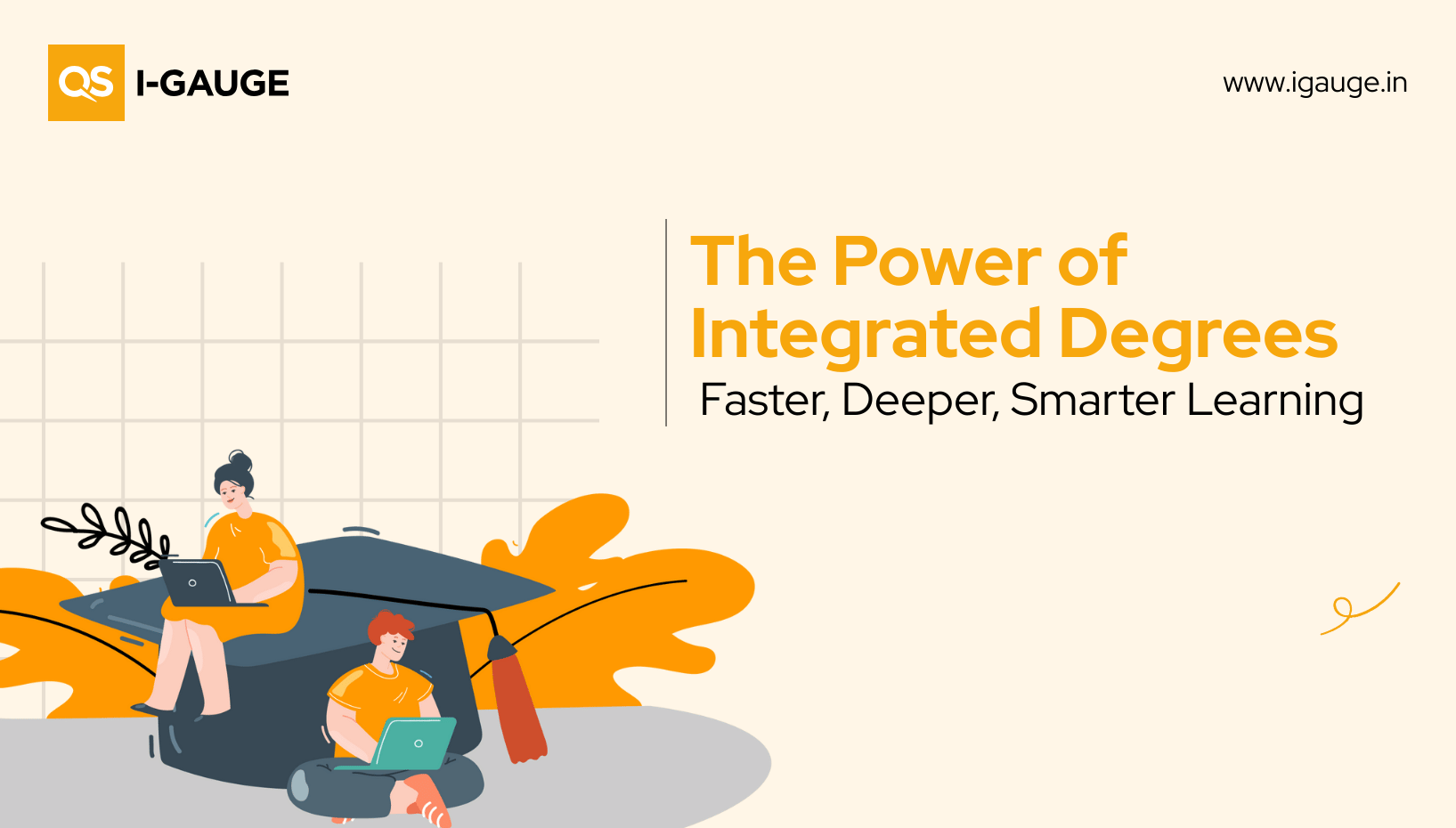
An integrated course is an academic program that combines two related academic degrees that can complement each other and help build on each other.
The programs are designed in different ways –
- An integration of a graduate and postgraduate course. E.g., integrated LLB programs like BA + LLB, BBA + LLB, B.Sc. + LLB etc., provide a holistic learning experience.
- Some programs also combine two related undergraduate courses, such as B.SC. + B.Ed.
- A bachelor’s degree with a professional certification, such as B.Com + a certification in accounting.
- A combination of bachelor’s and master’s degree, like BBA + MBA, BCA + MCA, B.Pharm. +M.Pharm., B.Tech. + M.Tech., etc., within a single curriculum framework.
Why choose an integrated course?
- Integrated courses club two related programs and help students get a unified learning experience. Learners can get a deeper understanding of the multi-disciplinary subjects, strengthen their real-world application of the concepts, and get a tighter grip on the skills needed to thrive in a professional setting.
As a case in point, when students take up BA & LLB separately, they will study arts subjects for the first 3 years and then switch to the law subjects for the next 3 years. But in an integrated 5-year BA+LLB course, the program integrates humanities and basics of law from the beginning, providing a multi-disciplinary learning, practical exposure at an earlier stage, and a more robust socio-legal perspective. - When two courses are studied and learnt in isolation, there might be places where these two programs overlap, and it might get difficult to look at the bigger picture. The amount of time spent studying the basics for each course can be reduced through an integrated model, and more focus can be placed on in-depth knowledge.
- An integrated course can be completed in a shorter duration as compared to studying each course separately. For instance, studying BA and LLB separately takes 6 years, but an integrated course of BA + LLB can be completed in 5 years.
- Similarly, the cost involved in an extended program is cheaper than enrolling for separate courses, and also saves the time and effort for separate entrance exams.
- Integrated courses pave the way for higher employability and an opportunity to get into advanced roles sooner due to a practical exposure to the job, extensive internship opportunities, and industry collaboration being built into the course module. E.g., while standalone MBA graduates have an employability rate of 54%, BBA-MBA graduates have an employability rate of 72%.
- Students can apply for advanced research degrees like M.Phil, PhD, or take up competitive exams after graduation, sooner.
- Many of these courses are globally recognised, expanding the employment opportunities.
A few statistics
- Integrated courses in management, law, and technology fields have the highest placement rates in India, with BBA + MBA topping the charts.
- Institutions like IIM Rohtak, IIM Indore, etc., are a few of the reputed management institutes that offer integrated courses and high placement rates. Salary packages for the integrated MBA course from these institutes range between Rs 19 lakhs to 27 lakhs per annum.
- For technology courses, institutes like IITs, NITs, and many other reputed private institutes offer about 85% placement rates.Integrated law courses have the best placement prospects coming from top National Law Universities (NLUs), and the students get employed at the top corporates, law firms, and the judiciary sector.
Conclusion
Integrated courses are a great option for a continuous and streamlined learning approach and experience. They are constantly tailored to the evolving market demands. They enhance flexibility and promote seamless progression into higher studies and advanced career opportunities.


 – understanding the course and career.jpeg)

